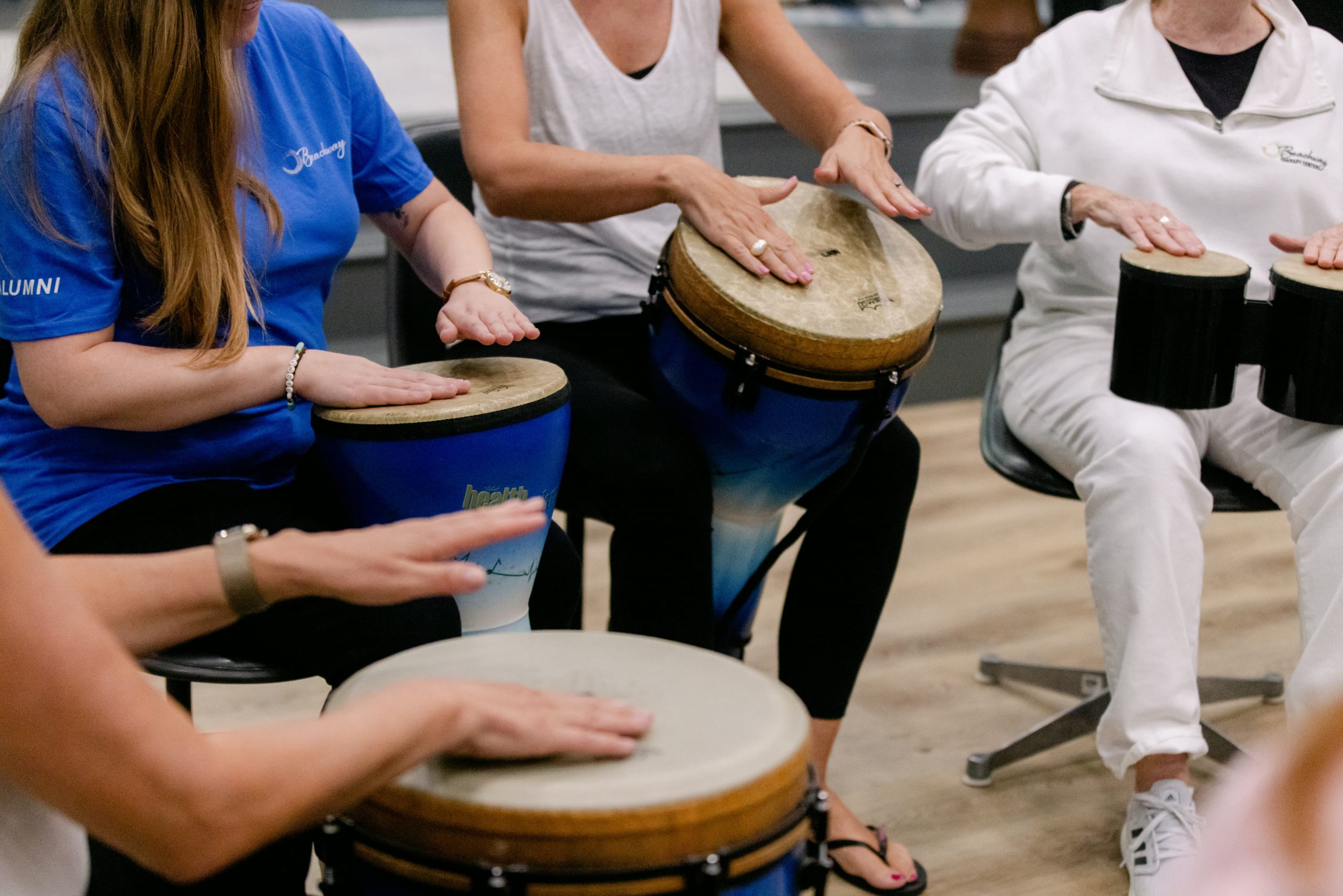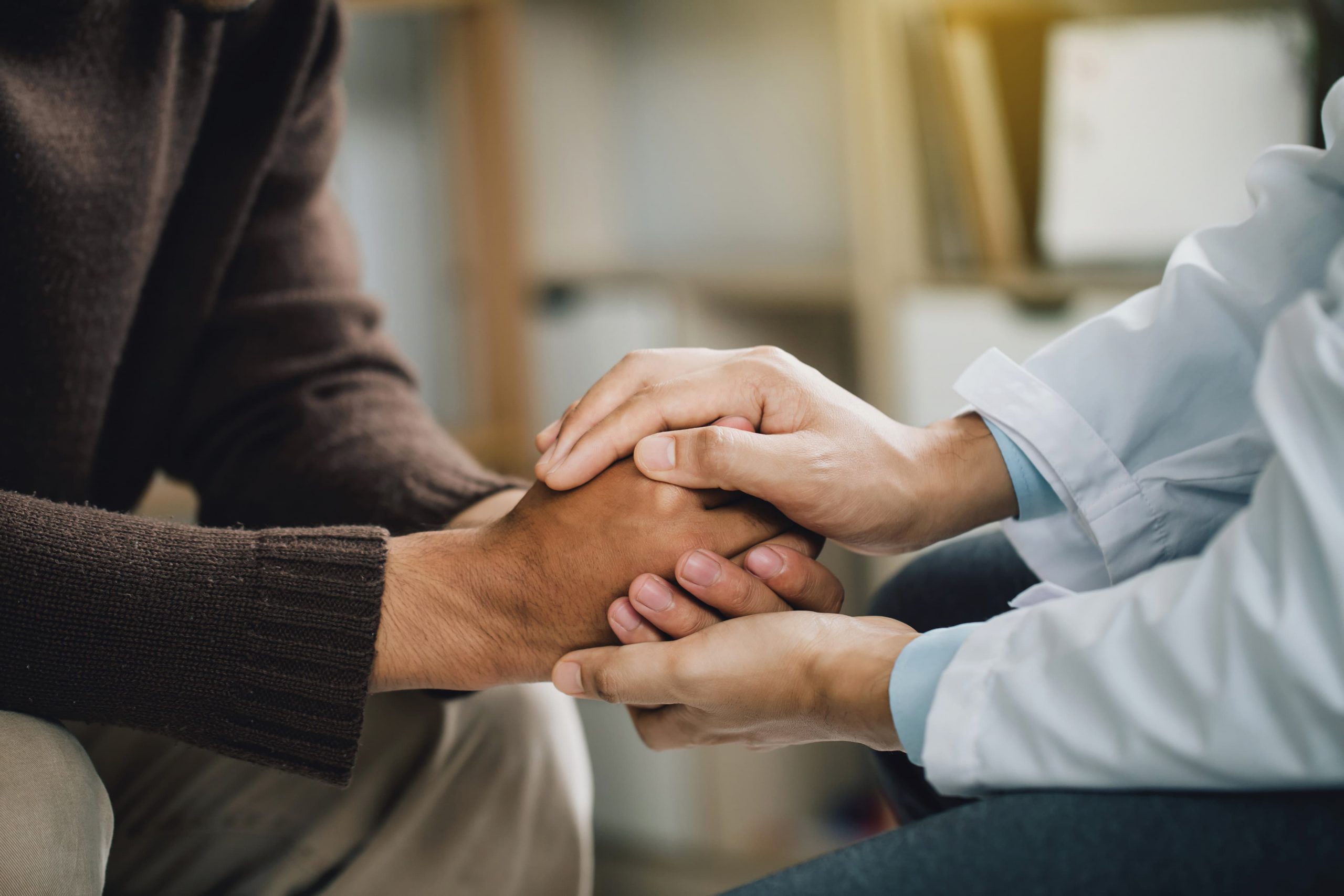

One of the most challenging mental illnesses to endure is bipolar disorder. Characterized by an intense shift in mood and behavior, those who suffer from bipolar disorder experience a wide range of symptoms on every emotional and physical level.
Making it even more complex is when that person with bipolar disorder abuses drugs or alcohol. Here at Beachway, these patients enter our Dual Diagnosis treatment program. This combines bipolar disorder treatment with a psychiatrist and substance abuse rehab with certified therapists.
It is imperative for individuals with more than one condition to undergo dual diagnosis treatment. Addressing both conditions concurrently greatly increases the likelihood of long-term sobriety and mental health management.
Bipolar individuals go from a frenzied state – also known as a manic state – to serious depression. These changes can occur gradually over days or weeks or suddenly within hours. Bipolar is often described as having high-highs and low-lows because individuals who suffer from it experience emotion on a wide spectrum and every level.
This constant change in mood makes bipolar an exhausting mood disorder that can seriously impact your life if left untreated. When substance abuse becomes intertwined, a dual diagnosis treatment program is the best rehabilitation path.

Connecting Substance
Abuse and Bipolar Disorder
There is a definite link between bipolar disorder and addiction. Although it’s something that researchers are still trying to understand completely, we do know that bipolar disorder often leads to addiction, and addiction can also cause bipolar disorder.
Essentially, bipolar disorder changes the chemical reactions in the brain, causing impulsiveness, depression, and more. This hormonal imbalance impacts a person’s mood, emotions, sleep patterns, eating patterns, and more. In many cases, individuals will seek out ways to find relief from these uncomfortable sensations in the form of drugs or alcohol.
Addiction is a chronic disease that causes a chemical reaction in the brain. Addiction impacts the pleasure and reward centers of the brain. Since bipolar disorder causes impaired judgment, it makes sense that individuals may seek to stimulate the pleasure-seeking centers of the brain with drugs or alcohol, leading to the need for drug or alcohol addiction treatment. However, a bipolar diagnosis must be made before beginning a treatment plan.

Signs of Bipolar Disorder
Bipolar disorder is often mistaken for other disorders such as anxiety or depression, depending on what type of episode they are in when they seek treatment. The key to successfully diagnosing bipolar disorder is to understand all the symptoms.
With bipolar disorder, there are usually two sets of symptoms that must be inspected. Both the manic and depressive side of bipolar comes with shockingly different signs and symptoms:
-
- Above-average energy levels.
- Restlessness, difficulty concentrating.
- Irritability.
- Racing thoughts combined with talking quickly and jumping from one idea to the next.
- Inappropriate or risky behavior.
- Lack of respect for social norms.
- Poor judgment, such as taking part in spending sprees or sexual promiscuity.
- Aggressive behavior and denial that anything is wrong.
Maniac Symptoms
- Feeling hopelessness, guilt, or worthlessness.
- Decreased energy.
- Losing interest in once-enjoyed hobbies or activities.
- Feeling tired.
- Difficulty concentrating or remembering things.
Depressive Symptoms

Medication for Bipolar Disorder
Bipolar disorder is a chronic illness, which means there is no cure. The only way to find relief from the symptoms is with an expert management treatment plan. For
many individuals, this includes a combination of medication and therapy. It’s important to avoid self-medicating as a way to cope with bipolar disorder. Some of the approved medications and treatment options include:
Mood Stabilizing
Drugs
Medications such as lithium, lamotrigine, and valproic acid help stabilize moods and prevent the high-highs and low-lows associated with bipolar disorder.
Anti-Depressants
Anti-depressants are not recommended for all individuals suffering from bipolar. However, they can be beneficial in specific cases.
Psychotherapy
Usually consisting of behavioral therapy, education, and other types of unique therapies, working with a therapist will foster positive beliefs, a healthy self-image, and a happy mood.
Anti-Psychotic Drugs
Olanzapine, risperidone, quetiapine, and lurasidone are also recommending to help prevent manic episodes.
Anti-Anxiety
Medication
Benzodiazepines and other anti-anxiety medication are also helpful in treating bipolar since they help regulate sleep.
Group Therapy
Finding a support system that consists of peers, friends, family, and healthcare providers is an important part of treatment for bipolar. Group therapy reinforces healthy routines and provides a sense of camaraderie with others going through similar experiences.


Treatment for Bipolar
Disorder and Addiction in
Florida
When a person experiences bipolar disorder and addiction simultaneously, it’s referred to as a dual diagnosis.
In most cases, dual diagnosis treats the mental illness and addiction simultaneously, which means, as a person begins to recover from the physical effects of addiction, more symptoms may present, or existing symptoms could worsen. Typically, things must worsen before they get better, which is why recovery with the help of a trained professional is so vital.

What is Beachway's Approach?
At Beachway Therapy Center, our therapists utilize an individualized approach to treat those who suffer from bipolar disorders. By combining evidence-based interventions with an approach that considers the circumstances and experiences of each patient individually. Our holistic approach focuses on identifying the underlying issues as our therapists work to resolve them with individual and group therapy while assisting the patient with medication management when appropriate.
Our personalized treatment plans include individualized therapy options based on the patient’s unique needs and interests. Some of our most popular therapies include:
-
- Art and music therapy
- Medication Management
We aim to help patients prepare for a long and healthy life through expert nutritional counseling and physical therapies. Reinforcing healthy habits is key to ensuring our patients successfully transition back into the real world.
We also provide aftercare plans to ensure the full success of our patients. Features such as placement in a sober living environment, access to group therapy, help to obtain employment, or post-secondary schooling are vital parts of most aftercare programs designed to prevent relapse.


How to Further Help Yourself
Living with bipolar and substance abuse may seem like an uphill battle. As soon as a person makes one breakthrough, something else might drag them back. As with any treatment program, the important thing to remember is that it might take time. Dual diagnosis results do not happen overnight. It takes commitment and hard work to get better. Some other ways that individuals with bipolar can help themselves include:
- Taking part in physical activity to get your heart rate up and relieve stress. Exercising also helps improve sleep patterns and generally reduces the symptoms of bipolar.
- Meditative and low-impact activities such as yoga, tai chi, and qigong are also recommended to help individuals feel more connected to their bodies and regulate sleep patterns.
- Learning to recognize your symptoms and understand what is happening when they worsen is also key in finding a successful treatment plan for bipolar disorder. You’ll need to stick to medication schedules, attend therapy sessions, and know when to ask for help when you need it.

Call Us Today and Get the Help You Need
If you or a loved one is living with bipolar disorder and substance abuse, there are answers and treatment available. At Beachway Treatment Center, our dual diagnosis specialists can help create a comprehensive recovery plan that will ensure a happy and healthy future.
Call 877-284-0353 today to speak with one of our qualified and compassionate counselors to get started on the road to recovery.



